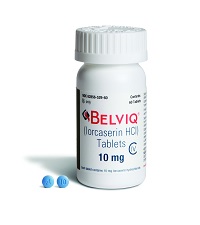
As competition in the obesity drug space ramps up, Arena's ($ARNA) marketing partner Eisai is rolling out a new savings card for weight-loss drug Belviq. And for the California drugmaker, that means good news and bad news for its revenue outlook.
According to Eisai, the new card will allow eligible patients without commercial coverage for Belviq to snag the med for no more than $75 for each monthly prescription. Those who do have commercial coverage can use the new card to secure additional savings if their copay is higher than $50 per monthly prescription.
Translation: Decreased net sales per prescription, but more prescriptions. Or so Eisai hopes.
So how does this shake out for Arena? Not so well, as far as fourth-quarter sales go. "We preliminarily expect that Eisai's net product sales of Belviq for the fourth quarter … will decrease by 35% to 45% relative to the $16.8 million for the third quarter," it said in a Tuesday SEC filing.
And while Arena forecasts the savings program--together with the traditional first-quarter bump the market sees from New Year's resolution-bound weight-losers--will help pad script numbers in early '15, it didn't say how much. It just told investors to expect a rise over Q4 numbers, which climbed 4% despite a 4% drop in the antiobesity market's overall prescription total.
Arena and Eisai will have to hope the new program can give Belviq the push it needs to compete with a couple of new up-and-coming weight-loss treatments. Aside from Vivus' ($VVUS) slow starter Qsymia, the market now features Orexigen's ($OREX) Contrave, which Takeda launched last fall, and Novo Nordisk's ($NVO) injectable Saxenda, green-lighted by the FDA at the end of December.
If analyst projections hold any weight, Contrave could end up taking the cake. Wells Fargo's Matthew Andrews has said he sees the Orexigen therapy hauling in $634 million in 2020 sales, which could swell to $1.2 billion if Contrave grabs a diabetes indication. That measures up to forecasts of $481 million for Belviq and $396 million for Qsymia; Bloomberg analyst estimates peg Saxenda's 2017 top-line tally at $429 million.
- see Eisai's release
- read Arena's 8-K
Special Report: Obesity drugs: Where are we now?